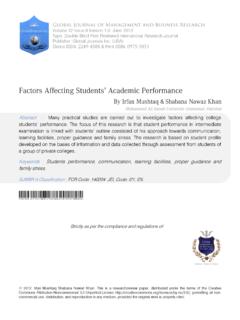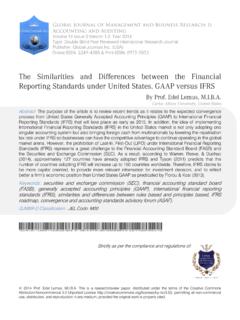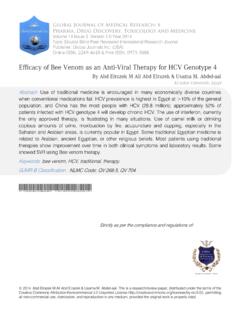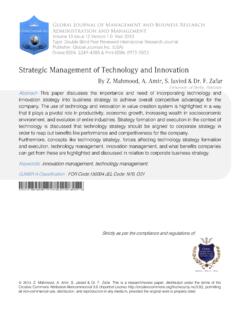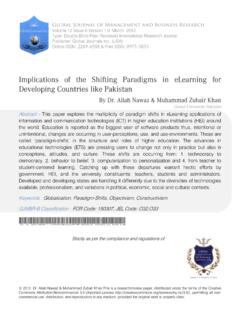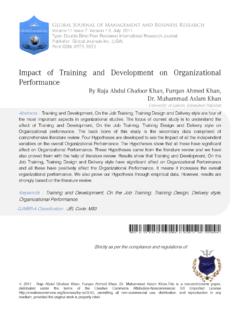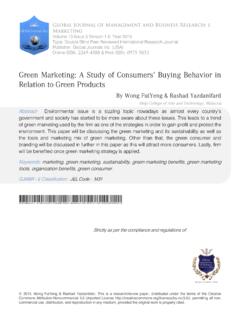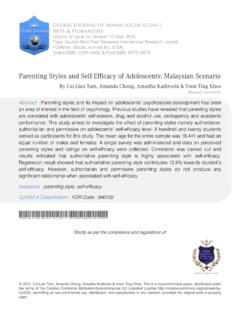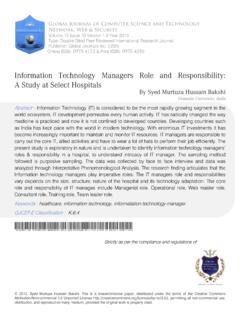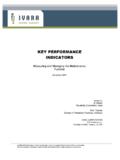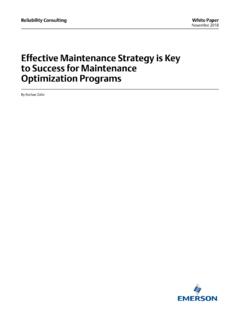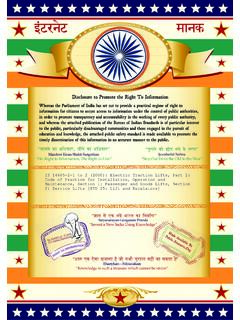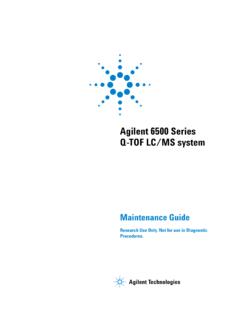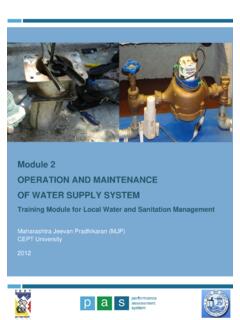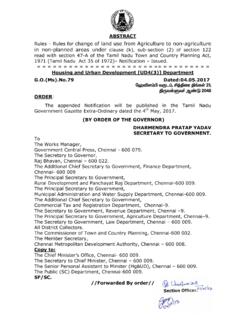Transcription of Total Productive Maintenance: A Case Study in ...
1 2012 Melesse Workneh Wakjira, Ajit Pal Singh. This is a research/review paper, distributed under the terms of the Creative Commons Attribution-Noncommercial Unported License ), permitting all non commercial use, distribution, and reproduction in any medium, provided the original work is properly cited. Global Journal of researches in engineering Industrial engineering Volume 12 Issue 1 Version February 2012 Type: Double Blind Peer Reviewed International Research Journal Publisher: Global Journals Inc. (USA) Online ISSN: 2249-4596 Print ISSN:0975-5861 Total Productive maintenance : A Case Study in Manufacturing Industry By Melesse Workneh Wakjira, Ajit Pal Singh Adama Science & Technology University Abstract - The purpose of this paper is to evaluate the contributions of Total Productive maintenance (TPM) initiatives towards improving manufacturing performance in Ethiopian malt manufacturing industry.
2 The correlations between various TPM implementation dimensions and manufacturing performance improvements have been evaluated and validated by employing overall equipment effectiveness (OEE) in boiler plant. The research focuses upon the significant contributions of TPM implementation success factors like top management leadership and involvement, traditional maintenance practices and holistic TPM implementation initiatives, towards affecting improvements in manufacturing performance in the Ethiopian industry. The Study establishes that focused TPM implementation over a reasonable time period can strategically contribute towards realization of significant manufacturing performance enhancements.
3 The Study highlights the strong potential of TPM implementation initiatives in affecting organizational performance improvements. The achievements of Ethiopian manufacturing organizations through proactive TPM initiatives have been evaluated and critical TPM success factors identified for enhancing the effectiveness of TPM implementation programs in the Ethiopian context. Keywords : Total Productive maintenance , Preventive maintenance , Overall equipment efficiency, Boiler plant, Malt manufacturing industry. GJRE-G Classification: FOR Code: 091002,091008 Total Productive MaintenanceA Case Study in Manufacturing Industry Strictly as per the compliance and regulations of: Total Productive maintenance .
4 A Case Study in Manufacturing Industry Melesse Workneh Wakjira , Ajit Pal Singh Abstract - The purpose of this paper is to evaluate the contributions of Total Productive maintenance (TPM) initiatives towards improving manufacturing performance in Ethiopian malt manufacturing industry. The correlations between various TPM implementation dimensions and manufacturing performance improvements have been evaluated and validated by employing overall equipment effectiveness (OEE) in boiler plant. The research focuses upon the significant contributions of TPM implementation success factors like top management leadership and involvement, traditional maintenance practices and holistic TPM implementation initiatives, towards affecting improvements in manufacturing performance in the Ethiopian industry.
5 The Study establishes that focused TPM implementation over a reasonable time period can strategically contribute towards realization of significant manufacturing performance enhancements. The Study highlights the strong potential of TPM implementation initiatives in affecting organizational performance improvements. The achievements of Ethiopian manufacturing organizations through proactive TPM initiatives have been evaluated and critical TPM success factors identified for enhancing the effectiveness of TPM implementation programs in the Ethiopian context.
6 Keywords : Total Productive maintenance , Preventive maintenance , Overall equipment efficiency, Boiler plant, Malt manufacturing industry. I. INTRODUCTION PM is a unique Japanese philosophy, which has been developed based on the Productive maintenance concepts and methodologies. This concept was first introduced by M/s Nippon Denso Co. Ltd. of Japan, a supplier of M/s Toyota Motor Company, Japan in the year 1971. Total Productive maintenance is an innovative approach to maintenance that optimizes equipment effectiveness, eliminates breakdowns and promotes autonomous maintenance by operators through day-to-day activities involving Total workforce (Bhadury, 2000).
7 The manufacturing industry has experienced an unprecedented degree of change in the last three decades, involving drastic changes in management approaches, product and process technologies, customer expectations, supplier attitudes as well as competitive behaviour (Ahuja et al., 2006). In today s fast-changing marketplace, slow, steady improvements Author : Mechanical & Vehicle Engineering Department, School of Engineering & Information Technologies, Adama Science & Technology University, Box 5008, Adama, Ethiopia, Africa. E-mail: Telephone: +251-921512436 in manufacturing operations do not guarantee sustained profitability or survival of an organization (Oke, 2005).
8 Thus the organizations need to improve at a faster rate than their competitors, if they are to become or remain leaders in the industry. A survey of manufacturers found that full-time maintenance personnel as a percentage of plant employees averaged percent of overall staffing in a Study involving manufacturing organizations (Dunn, 1988), whereas in refineries, the maintenance and operations departments are often the largest and each may comprise about 30 percent of Total staffing (Dekker, 1996). It has been found that in the UK manufacturing industry, maintenance spending accounts for a significant 12 to 23 percent of the Total factory operating costs (Cross, 1988).
9 With sobering figures like these, manufacturers are beginning to realize that maintenance organization and management, and design for maintainability and reliability are strategic factors for success in 1990s (Yoshida et al., 1990). Thus the effectiveness of maintenance function significantly contributes towards the performance of equipment, production and products (Teresko, 1992). Nakajima (1989), a major contributor of TPM, has defined TPM as an innovative approach to maintenance that optimizes equipment effectiveness, eliminates breakdowns, and promotes autonomous maintenance by operators through day-to-day activities involving the Total workforce (Bhadury, 2000).
10 II. CONTRIBUTIONS OF TPM TOWARDS IMPROVING MANUAFCTURING PERFORMANCE Manufacturing is considered to be an important element in a firm s endeavour to improve firm performance (Skinner, 1982; Hayes & Wheelwright, 1984). Superior manufacturing performance leads to competitiveness (Leachman et al., 2005). TPM is a highly structured approach, which uses a number of tools and techniques to achieve highly effective plants and machinery. With competition in manufacturing industries rising relentlessly, TPM has proved to be the maintenance improvement philosophy preventing the failure of an organization (Eti et al.)
